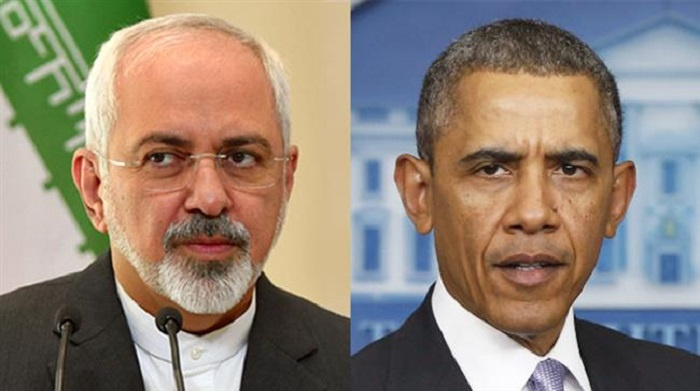A Welcome Handshake at the UN

The reported handshake between US President Barack Obama and Iran's Foreign Minister Mohammad Javad Zarif was a welcome step in the right direction of relaxing the existing tensions between US and Iran, irrespective of their profound differences.
Although there is a tendency to overanalyze and overestimate the significance of the handshake, the fact of the matter is that it has only symbolic significance and should not at all be interpreted as a sign of Iran's indignity or the like, as alleged by some critics of the handshake in Iran's Parliament (Majlis).
In fact, the comparison with the 1979 handshake between the US national security advisor Brzezinski and Iran's prime minister at the time, Mehdi Bazargan, is at best limited, given the serious disparities between the two cases, such as the political institutionalization of today's Iran compared to the nascent revolutionary state back then, as a result of which Iran operates on the international level with a much greater degree of self-confidence.
Needless to say, the recent nuclear agreement plays a big part in justifying the Obama-Zarif handshake, between two key architects of the deal that has de-escalated the tensions between Washington and Tehran and, hopefully, can set a precedent for further bilateral and multilateral discussions on broader issues of mutual interest, such as the threat of ISIS (Daesh) and future of Syria.
At the same time, we must bear in mind that a handshake does not spell the end of differences, given Obama's rather harsh anti-Iran speech at the UN that requires effective debunking. Obama once again accused Iran of being a source of regional instability, which is a reminder of the unreconstructed White House narrative on Iran in dire need of change. A prudent Iranian diplomacy is to combine both positive and negative moves in its arsenal of tactics and strategy, which is precisely the script for action closely followed by Dr. Zarif.
Generating a dose of added good will at a time when Iran and US are exploring the option of anti-terrorism coordination was the handshake's other benefit, that will be proven productive in the long run if Washington adjusts its Middle East policy to a post-containment approach toward Iran that would, in turn, permit such coordination. For the moment, however, the US's policy is mired in incoherence and it is virtually impossible to predict which direction it will evolve, i.e., greater or reduced tensions with Iran.
One reason for this lack of transparency on the US's part is that Iran has entered into an intelligence-sharing agreement with Iraq and Russia, which has bolstered its presence in Syria much to the chagrin of the US. It remains to be seen if the US will eventually nod to the Russian President's suggestion of a WWII-style anti-terrorist alliance, at the moment that does not seem likely because of the depth of US-Russia hostility. But, even short of alliance, some form of cooperation vis-a-vis the common threat of terrorism ought to be possible, logically speaking.
Consequently, Iran can even potentially play the middle power between Russia and the US, as strange as it may sound, simply because of the urgent priorities of anti-terrorism and regional stability. In the absence of a US-Russia understanding on Syria, the regional picture especially in Syria may become even more complicated and that would certainly work against regional stability.
To return to the subject of the handshake, chief Iranian priority is of course the faithful implementation of the nuclear agreement by the US, which will soon have a new president who must be fully committed to the deal otherwise it will spell trouble. The Iranian objective is to ensure the US's compliance with the terms of the agreement, and in that sense the handshake was a definite plus, reinforcing the public perception of a firm US commitment. Of course, this does not preclude the possibility of a contradictory US behavior in the future, but for the moment the US is moving in the right direction and therefore there was no harm done to Iran's national interests by Zarif's handshake with the US president.

